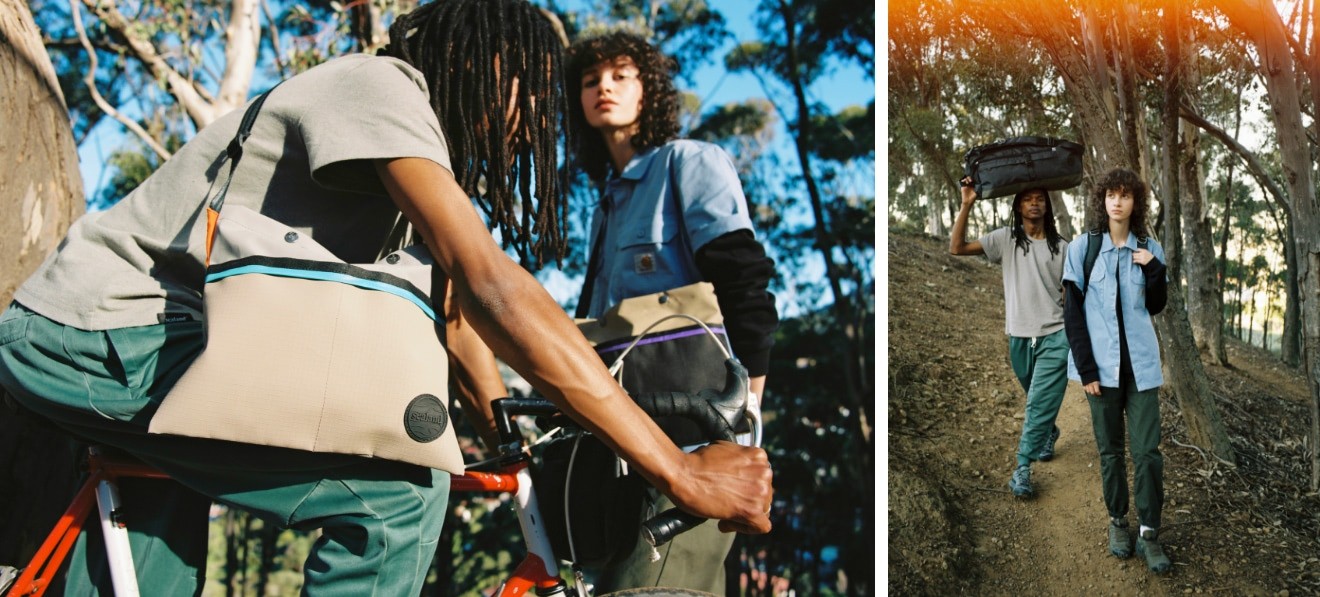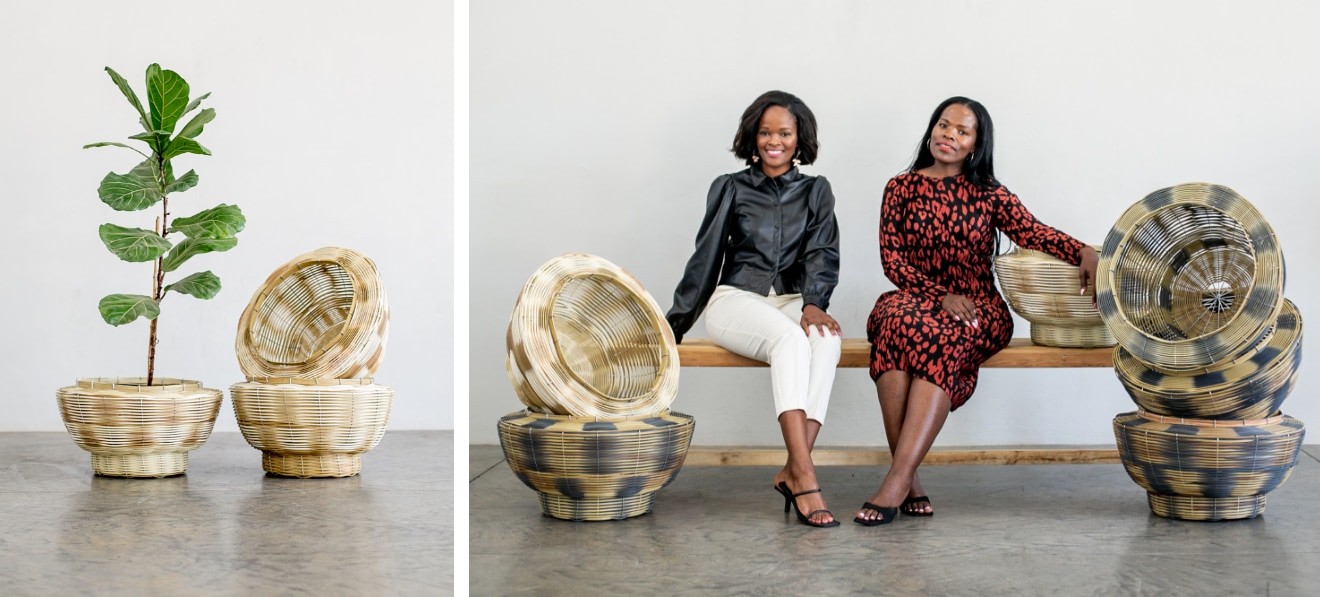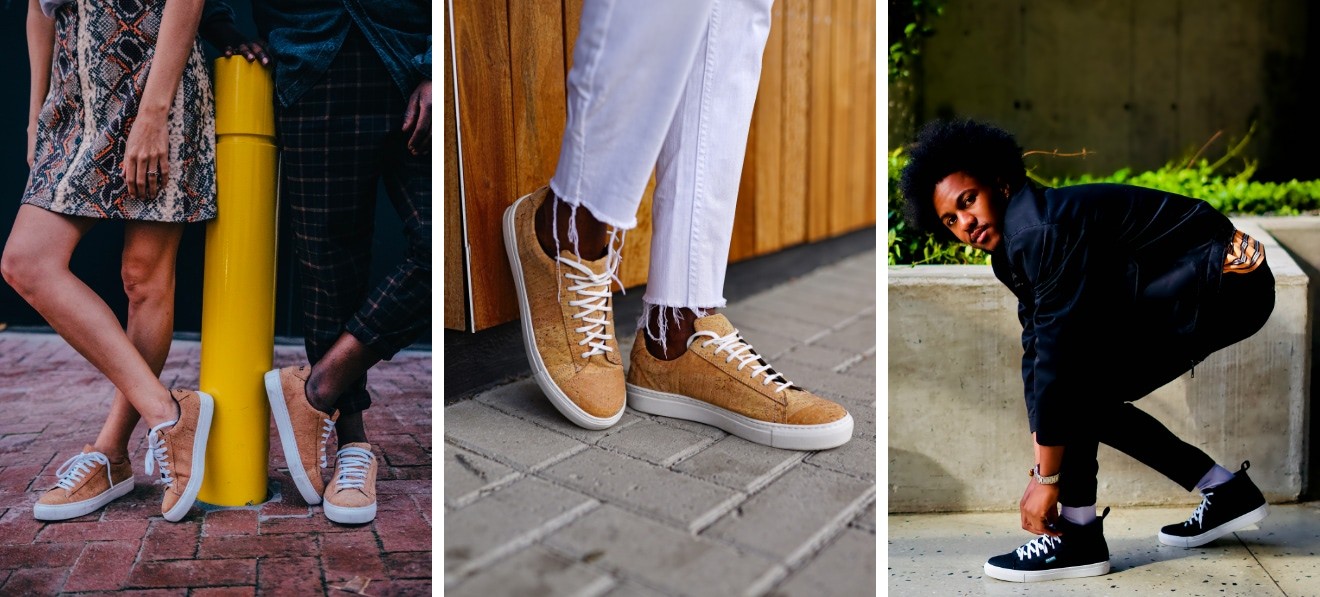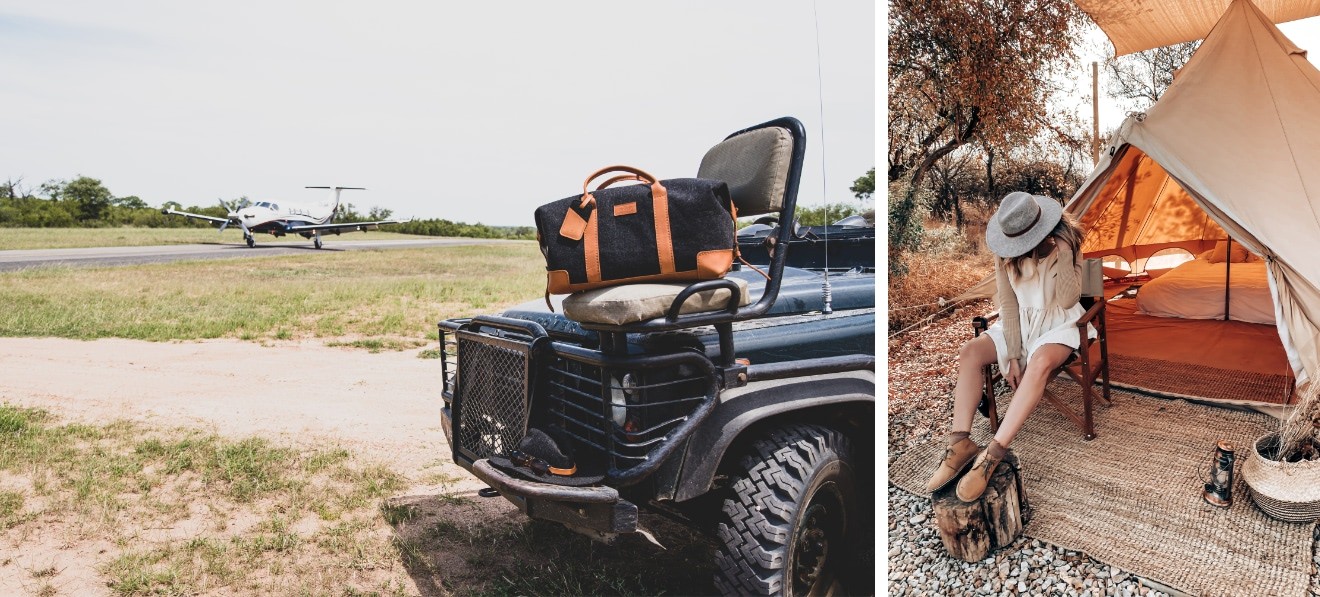Our tool for managing your permission to our use of cookies is temporarily offline. Therefore some functionality is missing.

FIVE SUSTAINABLE WORLD-CLASS SA BRANDS.
#BIGLOVE for MINI includes love for people and planet. Here in SA, local designers are making some of the most amazing, innovative, eco-friendly products. Check out these smart, stylish ways to save the planet and do good…
Aquatecture
Back in 2018, Netherlands-based, South African-born designer Shaakira Jassat was a speaker at Design Indaba. She arrived in the midst of a devastating drought. As a result of what she saw, Jassat set herself the task of designing a compact rain harvester that could easily and seamlessly be integrated with existing buildings, and also be aesthetically pleasing.
The result was the Aquatecture rain harvesting panel, a slim, unobtrusive aluminium panel that can be attached to the outside of a building to capture and divert rain into a collection tank. The panels have a perforated surface studded with little fan-shaped funnels to divert water trickling over it. The water can be used as part of a building’s grey water system, for flushing WCs, for example.
For the past year, the panels have been tested at the Granger Bay parking garage at the V&A Waterfront, with the collected water used at the Oranjezicht City Farm Market. The potential for the panels to harvest condensation from the atmosphere is also being explored.
SEALAND’S PRODUCTS ARE HANDMADE BY LOCAL CRAFTSPEOPLE AT THEIR CAMPUS ON THE SLOPES OF TABLE MOUNTAIN, NEAR HOUT BAY, AND EACH ONE CARRIES THE NAME OF THE TEAM MEMBER WHO MADE IT.
Mo’s Crib
Mo’s Crib is a fantastic local success story. This decor and design brand, headed up by sisters Morongwe ‘Mo’ and Michelle Mokone, began as a hobby. They sold origami swans at local markets, which proved so popular that the sisters were able to give up their jobs and concentrate solely on their start-up.
With a focus on sustainability and handcraft, they launched a range of laundry baskets made from recycled PVC water pipes. The range has grown and diversified to include a variety of baskets and planters (which were picked up by US retail giant Crate & Barrel earlier this year).
PVC water pipes are collected from landfills and construction sites around the country and cut into strips that are neatly woven to make the baskets and planters. Each creation takes around four to seven hours to complete. Locally, their products are stocked by the likes of Builders Warehouse, Woolworths and Mr Price Home, and Mo’s Crib participates in collaborations with VISI magazine.
The company is staffed entirely by women, who are provided with economic and educational opportunities through the company’s novel approach of creating a healthy and balanced work environment.
Sealand
In the little over five years since surfers Jasper Eales and Mike Schlebach launched the Sealand brand, it’s become a stalwart of eco-conscious design and manufacture in SA. The brand is renowned for its robust and, it has to be said, extremely stylish gear bags and apparel, aimed at those who like a lifestyle packed with adventure and outdoor activity. Recently, they’ve also added a range of cycling gear to their collection.
Sealand’s products are handmade by local craftspeople at their campus on the slopes of Table Mountain, near Hout Bay, and each one carries the name of the team member who made it.
All products are created using a combination of recycled and upcycled materials diverted from landfills and responsibly sourced materials and hardware, such as local certified cotton and hemp blends. Recycled yacht sail, which makes the gear waterproof and extremely durable, is also used extensively, while many products are lined with vibrant polytwill, a common in-store advertising material.
Reefer
Reefer cork sneakers made their first appearance in 2018, when the brand was launched by entrepreneur Seb Matheson. A philosophy graduate who’d done a few years in the corporate world, he describes himself as “weirdly and fascinatingly obsessed with shoes”. All the sneakers he came across tended to look the same and be made from the same materials, but Matheson wanted something distinctive… and sustainable.
Cork, he decided, was the answer, so he set out to create the Reefer brand of cork sneakers. More recently, he’s expanded the range to include hemp from Swaziland and rPET fabrics made from plastic bottles collected from the ocean.
The range also includes flip flops and cork boots, and Matheson hopes to expand it to incorporate handbags and more products for women. In the meantime, though, he’s pursuing his ideal of producing footwear that is not only ecologically sustainable, but which also adds value to the local economy.
The Joinery
The Joinery, launched by sisters Natalie and Kim Ellis, creates luxury goods using a felt fabric made from recycled plastic bottles. The bottles are collected from landfills around South Africa, and their use by The Joinery means they don’t end up in the ocean.
The brand started out in fashion, and has now branched out extensively. Its products range from home, office and travel accessories to those used by the hospitality industry, such as the slippers you find in hotel rooms. Bespoke corporate gifts are also available. There’s everything from totes and laptop bags to laundry baskets, placemats and coasters − all super-stylish and beautifully crafted.
All products are made by seamstresses at local sewing co-operatives in the informal settlements, up-skilled artisans and sustainable production houses.





